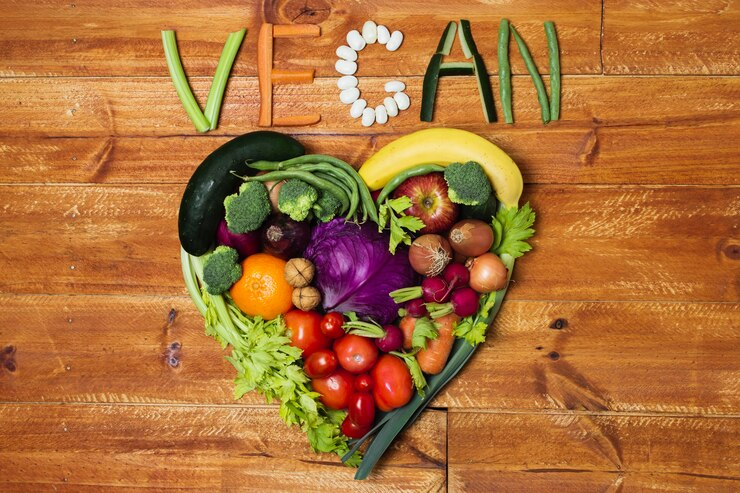Protein for Vegans and Vegetarians
Proteins are fundamental and essential to your body. They
are made up of amino acid. There are 20 different types of amino acids that
link together in different combination. Your body uses these amino acids to
make new proteins such as muscle and bones and other compounds. You can
supplement these by including whey protein or BCAA formula to your diet, which
is plant based. Your body is able to produce 11 amino acids that are referred
to as non-essential amino acids. Essential amino acids are the nine amino acids
that your body is unable to produce on its own. For your body to function, you
must consume an adequate amount of these in your diet.
In recent years, there has been a significant rise in the number
of individuals embracing plant-based lifestyles, whether for ethical,
environmental, or health reasons. One common concern for vegans and vegetarians
is obtaining an adequate amount of protein without relying on animal products. So
the next best thing for vegan diet is supplements like Fitspire whey protein
1kg. Contrary to popular belief, there are numerous plant-based sources rich in
protein that can fuel a thriving, meat-free life. In this blog post, we will
explore the diverse world of plant-based proteins, shedding light on their
nutritional benefits and offering insights into creating a well-rounded and
protein-packed vegan or vegetarian diet.
Understanding Protein Needs:
Protein is a crucial macronutrient that plays a fundamental
role in building and repairing tissues, supporting immune function, and
maintaining healthy skin and hair. For vegans and vegetarians, meeting daily
protein requirements can be achieved by combining a variety of plant-based
sources. Fitspire whey protein 1kg contains 24gm protein per scoop of
approximately 33gms quantity. It is a unique blend of whey protein coffee, to
give you a boost of energy and recommended dosage of protein. While the
recommended daily intake varies based on factors such as age, gender, and
activity level, a general guideline suggests 0.8 grams of protein per kilogram
of body weight.
Plant-Based Protein Powerhouses:
Legumes: Lentils, chickpeas, black beans, and other legumes
are excellent sources of protein, offering a versatile base for soups, stews,
and salads.
Quinoa: Often referred to as a complete protein, quinoa
contains all nine essential amino acids, making it a valuable addition to a
vegan or vegetarian diet.
Tofu and Tempeh: Derived from soybeans, tofu and tempeh are
versatile protein sources that can be incorporated into various dishes, from
stir-fries to sandwiches.
Nuts and Seeds: Almonds, peanuts, chia seeds, and hemp seeds
are nutrient-dense options, providing protein, healthy fats, and essential
vitamins and minerals.
Whole Grains: Brown rice, oats, and barley contribute not
only protein but also fiber, promoting digestive health and providing sustained
energy.
Seitan: Made from gluten, the protein in wheat, seitan is a
meat substitute with a texture similar to meat, making it a popular choice for
plant-based recipes.
There are variety of vegan products that are purely plant
based, these include energy bars to whey protein supplements that you can
include in your diet. The ingredients of these type of supplements are
specially sourced from plants to ensure that you get 100% vegan products that
you can consume safely, and without the worries whether for ethical,
environmental, or health reasons. Being plant based does not mean that they
lack essential nutrients. Well, on the contrary they pack the same (or greater)
amount of nutrients that are vital function of your body.
Balancing Nutrients:
Achieving a well-balanced diet involves more than just
meeting protein requirements. Vegans and vegetarians should also focus on
incorporating a variety of fruits, vegetables, whole grains, and healthy fats
to ensure a diverse range of nutrients. Additionally, supplementing with
vitamin B12, iron, and omega-3 fatty acids may be necessary, as these nutrients
are commonly found in animal products. Consulting with a healthcare
professional or a registered dietitian can help individuals tailor their
plant-based diet to meet their specific nutritional needs.
Getting more protein into your day, naturally:
Here are some ideas to help you increase the amount of
protein in your diet:
Try a sandwich with peanut butter. Always use natural peanut
butter that hasn't had any sugar, salt, or other additives added.
Nuts and seeds taste great in salads, paired with veggies,
or added to curries. Consider adding toasted pine nuts or flaked almonds to
your green salad.
Soups, casseroles, and pasta sauces all taste fantastic with
beans. Consider adding drained cannellini beans to your preferred casserole or
vegetable soup recipe.
You can easily get extra protein at lunchtime with hummus
spread on your sandwich or as a snack on a plate of freshly cut vegetable
sticks.
Greek yogurt is a high-protein food that you can eat all day
long. Sprinkle some over your preferred cereal for breakfast, place a spoonful
over a bowl of pumpkin soup, or serve it with fresh fruit for dessert.
Conclusion:
In conclusion, embracing a vegan or vegetarian lifestyle
does not mean sacrificing protein intake. By incorporating a variety of
plant-based protein sources, and protein supplements like super whey protein,
into a well-rounded diet, individuals can thrive without relying on animal
products. The key lies in diversity and mindfulness, ensuring that each meal is
a delicious and nutritious step towards a sustainable and healthful plant-based
lifestyle.


Comments
Post a Comment